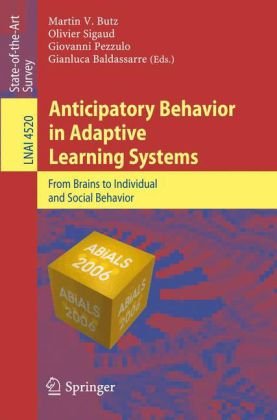

Most ebook files are in PDF format, so you can easily read them using various software such as Foxit Reader or directly on the Google Chrome browser.
Some ebook files are released by publishers in other formats such as .awz, .mobi, .epub, .fb2, etc. You may need to install specific software to read these formats on mobile/PC, such as Calibre.
Please read the tutorial at this link: https://ebookbell.com/faq
We offer FREE conversion to the popular formats you request; however, this may take some time. Therefore, right after payment, please email us, and we will try to provide the service as quickly as possible.
For some exceptional file formats or broken links (if any), please refrain from opening any disputes. Instead, email us first, and we will try to assist within a maximum of 6 hours.
EbookBell Team

5.0
80 reviewsAnticipatory behavior in adaptive learning systems is steadily gaining the - terest of scientists, although many researchers still do not explicitly consider the actual anticipatory capabilities of their systems. Similarly to the previous two workshops, the third workshop on anticipatory behavior in adaptive lea- ing systems (ABiALS 2006) has shown yet again that the similarities between di?erent anticipatory mechanisms in diverse cognitive systems are striking. The discussions and presentations on the workshop day of September 30th, 2006, during the Simulation of Adaptive Behavior Conference (SAB 2006), con?rmed that the investigations into anticipatory cognitive mechanisms for behavior and learning strongly overlap among researchers from various disciplines, including the whole interdisciplinary cognitive science area. Thus, further conceptualizations of anticipatory mechanisms seem man- tory. The introductory chapter of this volume therefore does not only provide an overview of the contributions included in this volume but also proposes a taxonomy of how anticipatory mechanisms can improve adaptive behavior and learning in cognitive systems. During the workshop it became clear that ant- ipations are involved in various cognitive processes that range from individual anticipatory mechanisms to social anticipatory behavior. This book re?ects this structure by ?rst providing neuroscienti?c as well as psychological evidence for anticipatorymechanismsinvolvedinbehavior,learning,language,andcognition. Next,individualpredictivecapabilitiesandanticipatorybehaviorcapabilitiesare investigated. Finally, anticipation relevant in social interaction is studied.